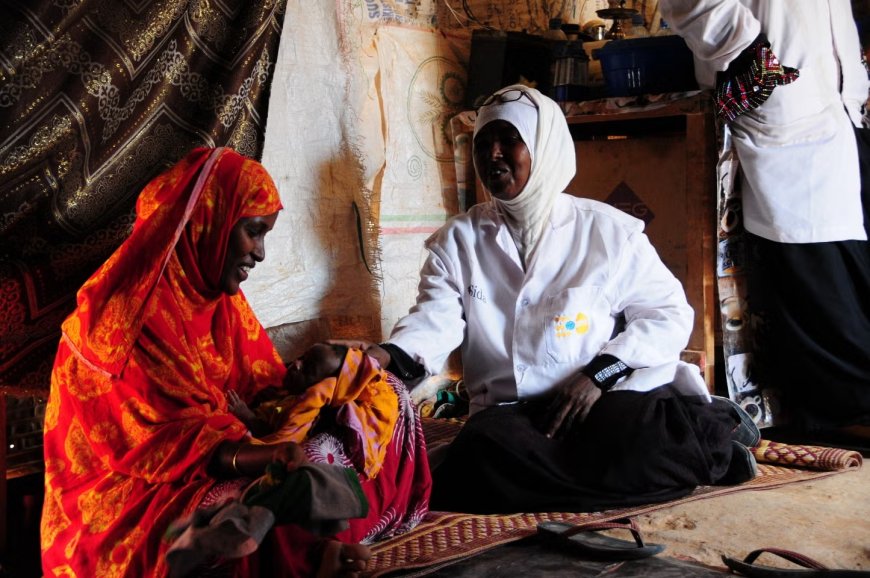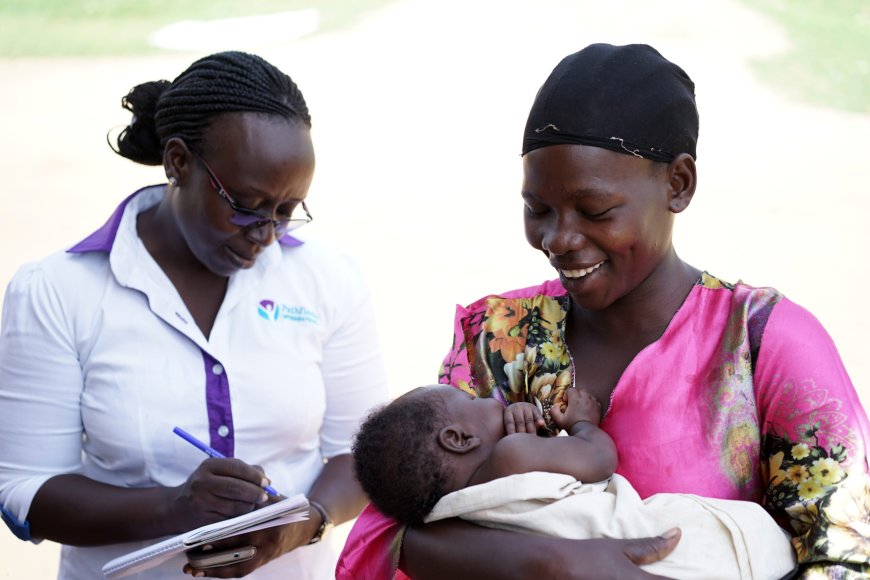Faith and Family Planning: How Different Religions Approach Contraception and Reproductive Choices
Explore how major world religions view contraception, family planning, and reproductive health. Understanding diverse religious perspectives on birth control and fertility decisions.

The intersection of faith and reproductive health represents one of the most complex areas where personal beliefs, religious teachings, and practical health decisions converge. For millions of people worldwide, reproductive choices are not made in isolation but within the context of deeply held religious convictions and community expectations. Understanding how different religious traditions approach contraception and family planning can help individuals navigate these decisions while honoring both their faith and their health needs.
Catholic Church: Natural Family Planning and Moral Theology
The Roman Catholic Church maintains one of the most well-defined positions on contraception and family planning, rooted in centuries of theological development and natural law theory. The Church's teaching, most clearly articulated in Pope Paul VI's 1968 encyclical "Humanae Vitae," prohibits artificial contraception while supporting natural family planning methods.
Catholic doctrine emphasizes that sexual intercourse has two primary purposes: unity between spouses and procreation. The Church teaches that artificial contraception separates these purposes unnaturally, interfering with God's design for human sexuality. This includes barrier methods, hormonal contraception, and permanent sterilization procedures.
However, the Church strongly supports natural family planning (NFP) methods, which involve tracking fertility signs to identify fertile and infertile periods in a woman's cycle. These methods are considered morally acceptable because they work with natural bodily processes rather than against them. Modern NFP methods can be highly effective when used correctly and consistently.
The Church also recognizes that married couples have the responsibility to make prudent decisions about family size based on their circumstances, health, and ability to provide for children. This concept of "responsible parenthood" allows couples to space pregnancies or limit family size using natural methods when serious reasons exist.
Many Catholic couples navigate these teachings in various ways. Some follow Church teaching strictly, using only natural methods. Others may privately use artificial contraception while maintaining their Catholic identity. Progressive Catholic theologians and some lay organizations advocate for updated interpretations of Church teaching that might accommodate modern contraceptive methods.
Protestant Christianity: Denominational Diversity and Personal Conscience
Protestant approaches to contraception and family planning vary significantly among denominations, reflecting the principle of individual interpretation of Scripture and the diversity within Protestant Christianity.
Most mainstream Protestant denominations, including United Methodist, Presbyterian Church (USA), Episcopal, and Lutheran churches, officially support the use of contraception within marriage as a matter of responsible stewardship and family planning. These churches generally view contraception as a tool that allows couples to plan their families thoughtfully and provide adequately for their children.
The Southern Baptist Convention, representing the largest Protestant denomination in the United States, officially supports contraception use within marriage while opposing abortion except in cases of rape, incest, or when the mother's life is endangered. However, individual Baptist churches may hold varying views.
Evangelical Protestant churches show more diversity in their approaches. While many support contraception, some emphasize the importance of being "open to life" and may discourage certain contraceptive methods, particularly those that might prevent implantation of a fertilized egg, such as IUDs or emergency contraception.
Pentecostal and charismatic churches often emphasize God's sovereignty in family planning while still allowing for contraceptive use. The concept of "quiver full" theology, which encourages large families as a blessing from God, influences some evangelical communities but represents a minority position within broader Protestant Christianity.
Islamic Perspectives: Jurisprudential Flexibility and Health Considerations
Islamic jurisprudence (fiqh) generally permits contraception within marriage, based on interpretations of Quranic principles and prophetic traditions (hadith). This relatively permissive approach stems from Islam's emphasis on human welfare (maslaha) and the recognition that family planning can serve legitimate purposes.
The Quran does not explicitly prohibit contraception, and several hadith suggest that early Muslim communities practiced family planning methods. Islamic scholars generally agree that temporary contraceptive methods are permissible when used for valid reasons, such as protecting maternal health, ensuring adequate spacing between children, or addressing financial constraints.
Different schools of Islamic jurisprudence (madhabs) may vary in their specific rulings, but most permit barrier methods, hormonal contraception, and other reversible methods. The timing of ensoulment (when the soul enters the fetus) is also relevant to Islamic discussions of contraception, with most scholars placing this at 120 days after conception.
Permanent sterilization procedures are generally discouraged unless medically necessary, as they represent a permanent alteration of God's creation. However, medical necessity can override this general prohibition.
Contemporary Muslim scholars and medical professionals have developed detailed guidelines for contraceptive use that balance religious principles with modern medical knowledge. Organizations like the Islamic Organization for Medical Sciences have produced comprehensive resources addressing reproductive health from an Islamic perspective.
Judaism: Talmudic Wisdom and Contemporary Applications
Jewish approaches to contraception and family planning draw from biblical commandments, Talmudic discussions, and ongoing rabbinical interpretation. The foundational commandment to "be fruitful and multiply" (pru urvu) influences Jewish thinking about reproduction while allowing for practical considerations.
Orthodox Judaism generally requires couples to fulfill the basic obligation of having children (traditionally interpreted as at least one son and one daughter) before using contraception for family planning purposes. After fulfilling this obligation, contraception may be used for various reasons, including maternal health, financial considerations, or family harmony.
The method of contraception matters significantly in Orthodox Jewish law (halakha). Methods that do not interfere with the natural sexual act are generally preferred. Hormonal contraception, particularly birth control pills, is often considered acceptable because they prevent ovulation without creating a barrier during intercourse.
Conservative and Reform Judaism take more liberal approaches to contraception, generally supporting couples' autonomy in making reproductive decisions. These movements emphasize the values of responsible parenthood and may be more accepting of various contraceptive methods.
Jewish law also contains detailed provisions about niddah (family purity laws) that affect timing of sexual relations and may influence contraceptive choices. Modern Orthodox couples often work with rabbinical authorities and medical professionals to find contraceptive solutions that accommodate both religious requirements and health needs.
Eastern Orthodox Christianity: Economia and Pastoral Flexibility
Eastern Orthodox churches generally permit contraception within marriage while maintaining some theological reservations about certain methods. The Orthodox principle of economia (pastoral discretion) allows for flexibility in applying general principles to specific situations.
Most Orthodox churches accept barrier methods and natural family planning while expressing more caution about hormonal contraception and IUDs. The Orthodox emphasis on the unity of sexual intercourse and potential procreation leads some theologians to prefer methods that don't fundamentally alter the sexual act or the woman's natural fertility.
Orthodox teaching typically emphasizes that contraceptive decisions should be made prayerfully and in consultation with one's spiritual father or confessor. The goal is responsible parenthood that takes into account the couple's spiritual, emotional, and material circumstances.
Hindu and Buddhist Perspectives: Karma, Compassion, and Practical Wisdom
Hindu traditions generally do not prohibit contraception, viewing family planning as a matter of practical wisdom and responsible action. The concept of dharma (righteous duty) includes providing adequately for one's family, which may justify limiting family size.
Different Hindu schools of thought may emphasize various aspects of reproductive ethics, but most contemporary Hindu religious leaders support contraceptive use within marriage. The principle of ahimsa (non-violence) might influence choices about specific contraceptive methods, particularly those that might affect early embryonic development.
Buddhist approaches to contraception emphasize compassion and the reduction of suffering. The Buddhist principle of the Middle Way suggests that moderate family planning can be skillful means for reducing suffering for parents and children. Most Buddhist teachers support contraceptive use when it serves the goal of reducing suffering and promoting wellbeing.
Contemporary Challenges and Interfaith Dialogue
Modern reproductive technologies and medical advances continue to challenge traditional religious teachings about contraception and family planning. Issues such as emergency contraception, long-acting reversible contraceptives, and fertility treatments require ongoing theological reflection and pastoral guidance.
Interfaith couples face particular challenges in navigating different religious approaches to family planning. Many couples find ways to honor both traditions while making practical decisions about their reproductive health.
Religious communities increasingly engage with medical professionals to develop guidance that integrates faith principles with current medical knowledge. This collaboration helps ensure that religious teachings remain relevant and practically applicable in contemporary contexts.

Practical Implications for Healthcare and Counseling
Understanding religious perspectives on contraception is essential for healthcare providers, counselors, and others who work with diverse populations. Culturally competent care requires awareness of how religious beliefs may influence reproductive decisions and the importance of respectful dialogue about these sensitive topics.
Many healthcare systems now provide resources for navigating religious considerations in reproductive health decisions. This includes working with religious leaders, providing appropriate referrals, and respecting patients' religious convictions while ensuring access to comprehensive information and care.
Moving Forward: Respect, Dialogue, and Individual Conscience
The diversity of religious approaches to contraception and family planning reflects the complexity of human experience and the ongoing evolution of religious thought. While maintaining respect for traditional teachings, many religious communities continue to grapple with contemporary challenges and seek ways to provide meaningful guidance for their members.
Ultimately, most religious traditions emphasize the importance of responsible decision-making, care for family wellbeing, and respect for human dignity in reproductive choices. These shared values provide common ground for dialogue and mutual understanding, even amid theological differences.
For individuals navigating these decisions, the key is often finding ways to honor their faith convictions while making responsible choices about their health and family planning. This may involve consultation with religious leaders, healthcare providers, and trusted advisors who can help integrate spiritual and practical considerations.











